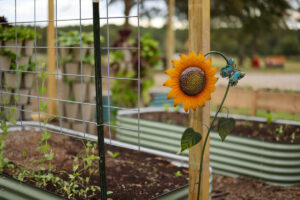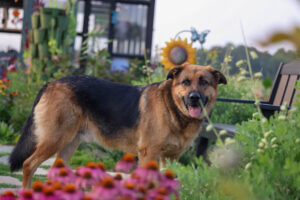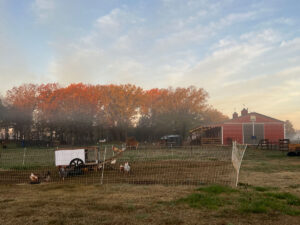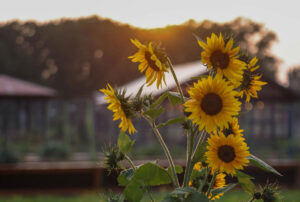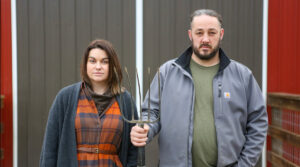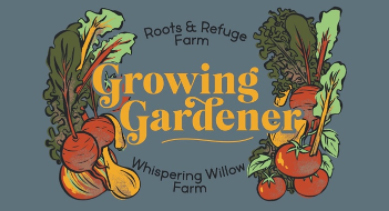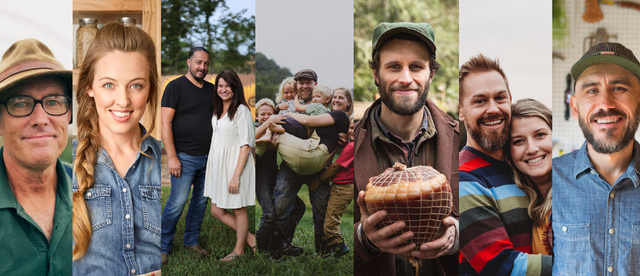There are many mistakes that we've made over the years of our homesteading journey. Come learn from the mistakes we made over the years and save yourself countless time, money, energy and stress.
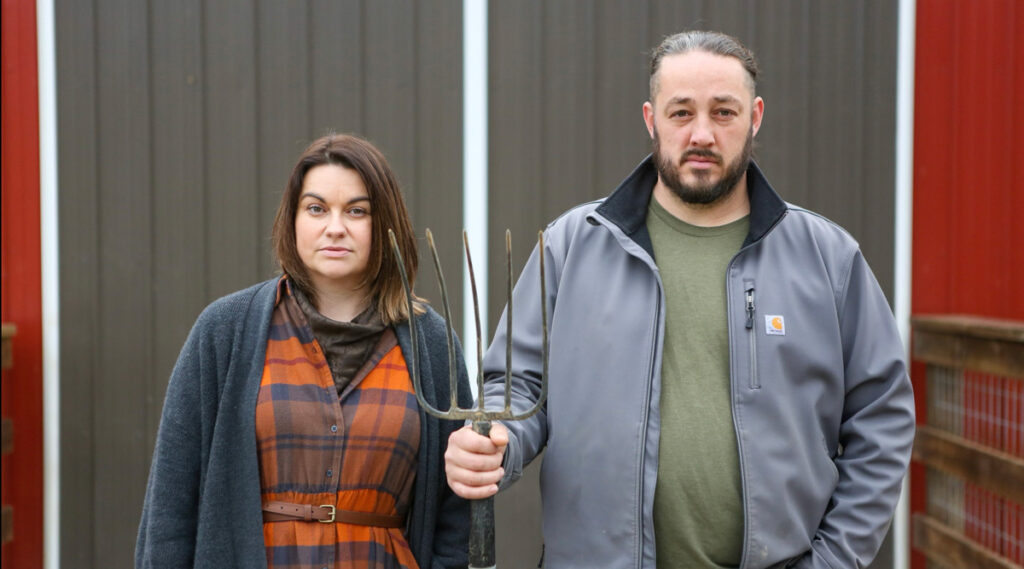
Though there is a lot you can learn in the waiting room, there are some things that can only be truly learned once you're able to do the doing.
Now, does that mean you should stop learning the facts and skills, so you're well-equipped when your day comes? Absolutely not! Just know there's only so much someone can write in a book or show in a video. True experience comes through doing and will be unique to your specific property, your plans and your goals.
This is episode four of the Roots and Refuge Podcast. If you've missed any of our previous podcasts, be sure to check out the podcast page right here.
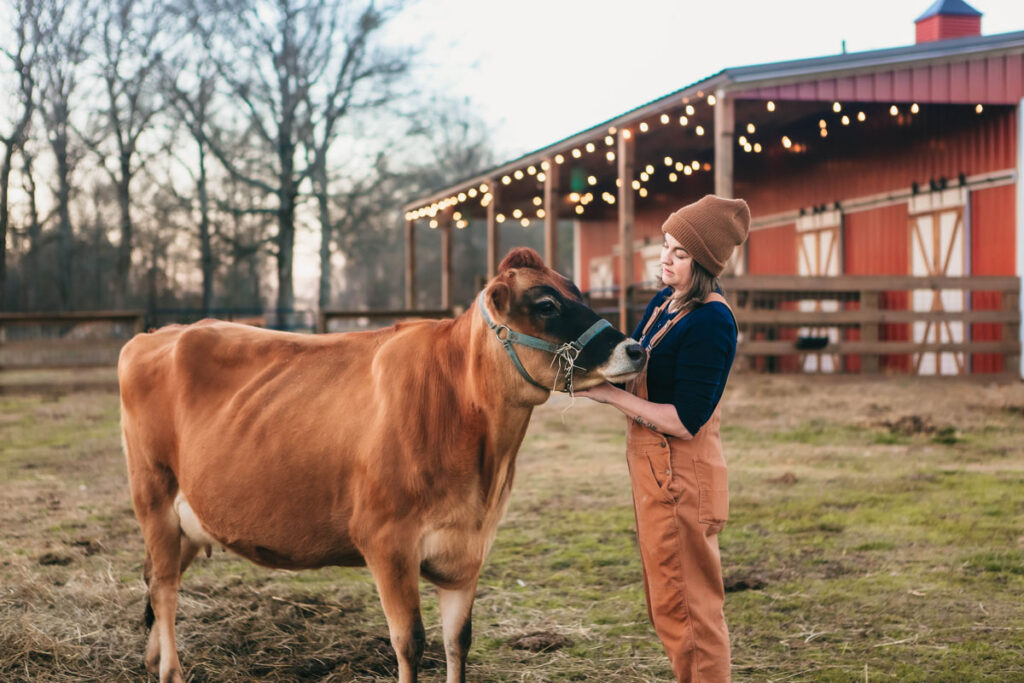
Getting Animals Before You're Ready
The first mistake we made was getting animals before we were ready.
Free animals are not always a good deal. But if you get a free animal that you're not ready for, then it will be a big mistake. Most often, the acquisition cost of the animal is the least expensive part of getting that animal.
Before starting with any animal, it's important to count the cost. Consider the infrastructure needed to house them, fences for keeping them contained, food costs to feed them (for the duration of their life), vet bills, breeding fees, etc.
We jumped in with both feet on our first farm and often times acquired animals before we were ready. This brought unnecessary stress and an over-extended budget.
It truly zapped the joy out of raising those animals. What we thought was moving in the right direction of simplicity and freedom actually ended up as the opposite.
Just like those 30 chickens we acquired at such a great deal (mentioned in the podcast), we ended up with over half being roosters. After butchering the roosters (without the proper tools), we realized they hardly have any breast meat and actually don't taste great.
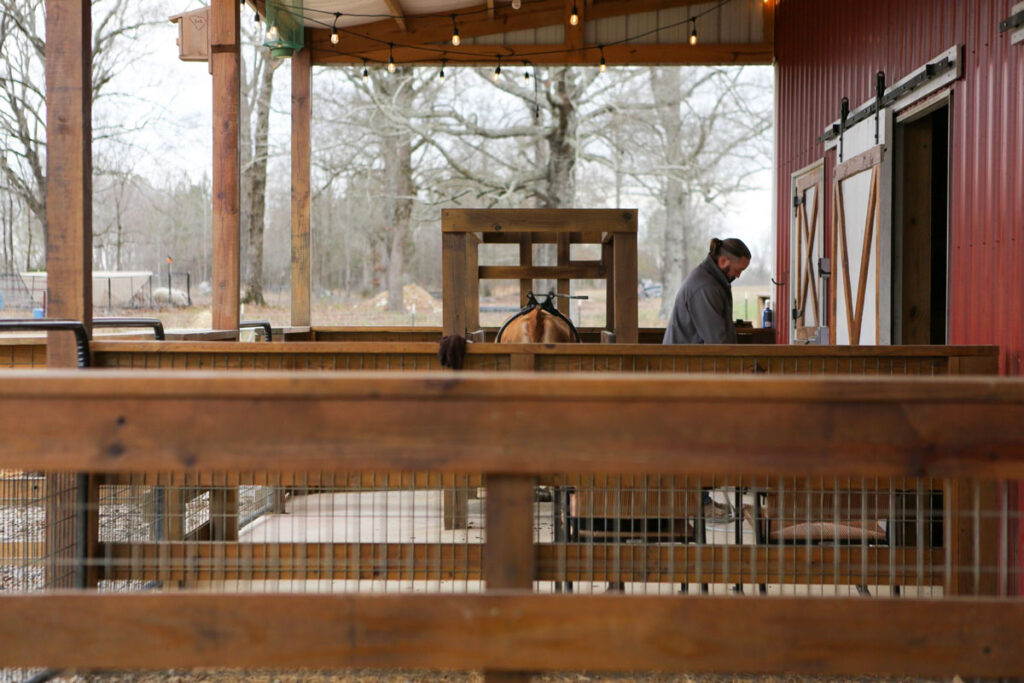
Not Having a Plan or Goals
There are many projects that seem like a great idea for moving your homestead forward, saving money, and becoming more self-sufficient or resilient. But if you start these projects without a plan or without thinking through the plan in its entirety, you may make costly mistakes.
For us, this looked like planting a garden and not having a way to run water out to it (and let me just say, watering a garden by hand with buckets you fill up at the house is not ideal).
We also planted fruit trees in the only viable yard space we had to raise goats.
We build multiple fences and ended up having to tear them down because they weren't built properly or they didn't have the right flow or access gates.
One of the biggest rushed mistakes we made was the layout and flow of the property. As we added each new element, it ended up feeling like everything was always on top of itself.
We eventually went back to the drawing board and laid out a five-year vision and plan to help mitigate mistakes moving forward. But had we had that plan from the beginning, we could have avoided many costly mistakes. (You can listen to that podcast on our five-year vision here.)
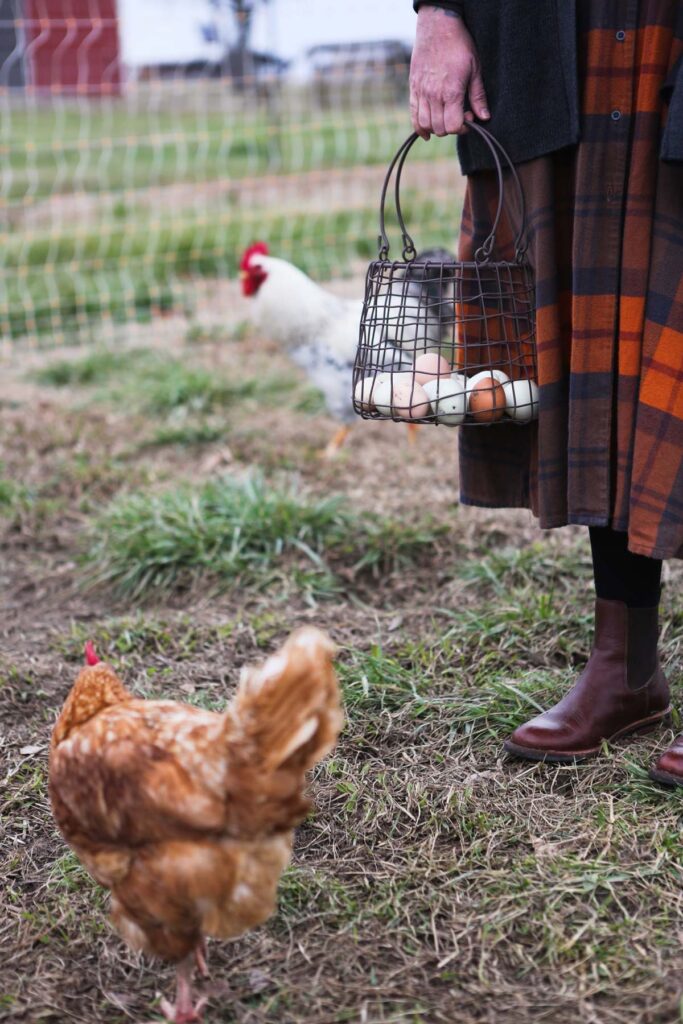
Trial & Error is Sometimes Necessary
There are many projects along the way that you may think you'll enjoy. Or you may see someone else doing something and feel that pressure like you need to do it, too.
For us, one of these was raising rabbits for meat. We built the infrastructure and jumped in with both feet. Then realized we didn't enjoy it at all.
We should have quit long before we did, but it was difficult because of the investment and feeling like we were failures. But once we stopped raising rabbits, we simply figured out how to repurpose all the cages and infrastructure we'd created for that project, and we were much happier daily.
Some of you may get into raising chickens because someone you know raises chickens, and you feel like you should, too. But maybe you hate the chicken chores. You hate the work. You just don't enjoy it! Let us give you permission to stop!
The longer you homestead, the more you'll start to notice that projects you do on the farm will ebb and flow depending on the season you're in. When we moved to South Carolina, we relocated all our dairy goats. We don't currently have goats on the farm, and we're OK with that!
Not having goats is what works for our family right now. At this point, cows make a lot more sense for our family and our location. We have teenage boys who eat a lot, we have plenty of grass and area for the cows to graze, and it's simply what's been working for us.
Will we ever own goats again? Maybe!
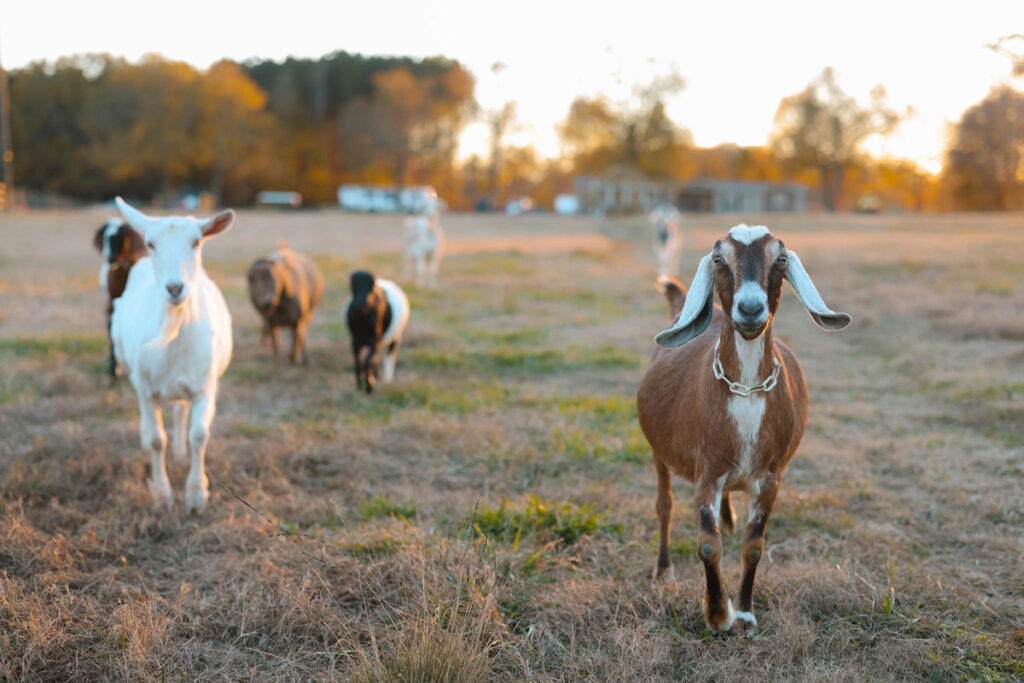
This is Not a Linear Journey
This may go hand-in-hand with the last point, but it's important to understand that your journey may change as you go through various seasons in your life.
Some seasons of our life have required downsizing in order to keep a farm that serves our needs (not the other way around).
For us, this last year has been one of the most difficult as I was extremely sick. I don't really think I understood the depth of how sick I was, and I tried to push through way more than I probably should have with last year's garden. But if you're in a season where you're sick, or maybe you're expecting a new baby, give yourself the permission to pull back and do less.
Plant a smaller garden, or don't plant one at all! Do what you need to do so the farm is still serving you, and you're not needing to be a slave to the farm.
To make this lifestyle successful, you are going to have to be OK with the fact that some seasons are not as productive as others but that they are all equally valuable.
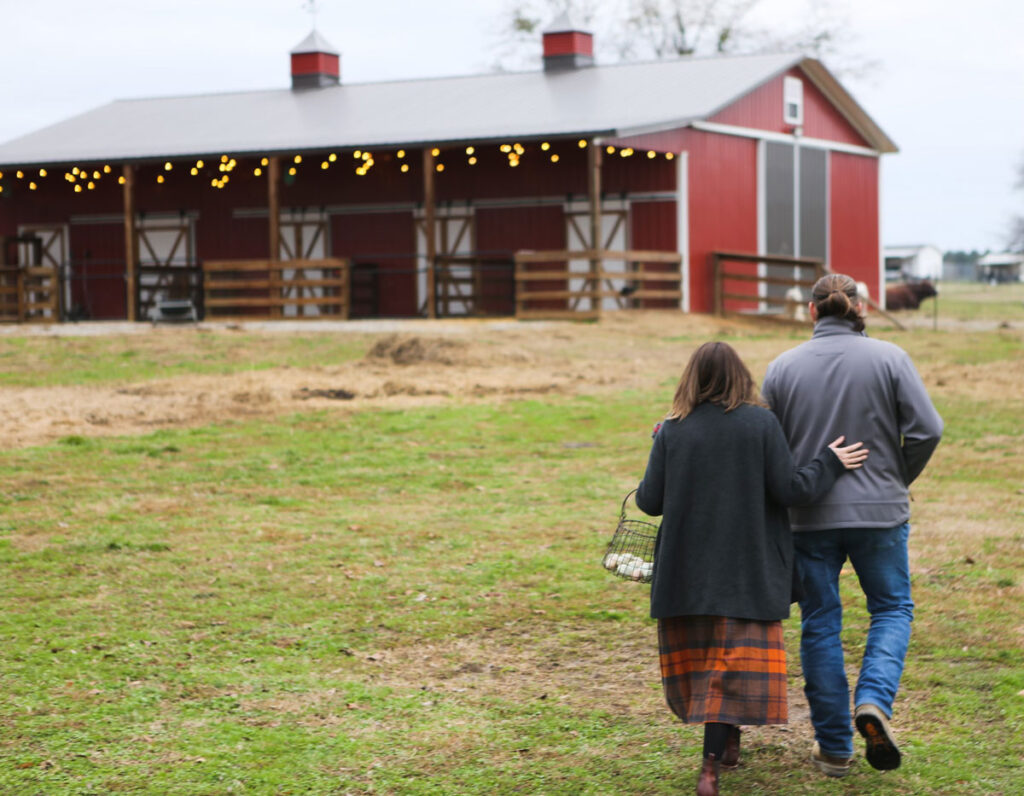
Don't Be Afraid
This is what fuels all the rest… do not be afraid!
The year we jumped into homesteading, we got really afraid. It was a bit of an awakening where we realized just how broken the system is.
That realization came with a feeling of “we need to prepare,” but instead of moving forward in a connected, productive way, we let our imagination run wild and let fear get the best of us where we did way too much.
We took on debt that we knew better than to take on. But because we were being driven by fear, we felt like these were necessary steps.
Fear is never how God will motivate you to do something. If He's calling you to do something, He'll also provide the time and resources for you to get where He wants you to be.
Urgency and fear are not the same things. We can feel an urgency to break free from the food system and begin raising our own food. But urgency just means now is the time. It's time to learn, it's time to implement, and it's time to take the steps forward. But do not mistake urgency for fear.
Fear takes God out of the equation. Fear does not think long-term. Fear does not take breaks. Fear does not let up and can become crippling. Urgency takes time for rest, recuperation, and playing catch with your kid.
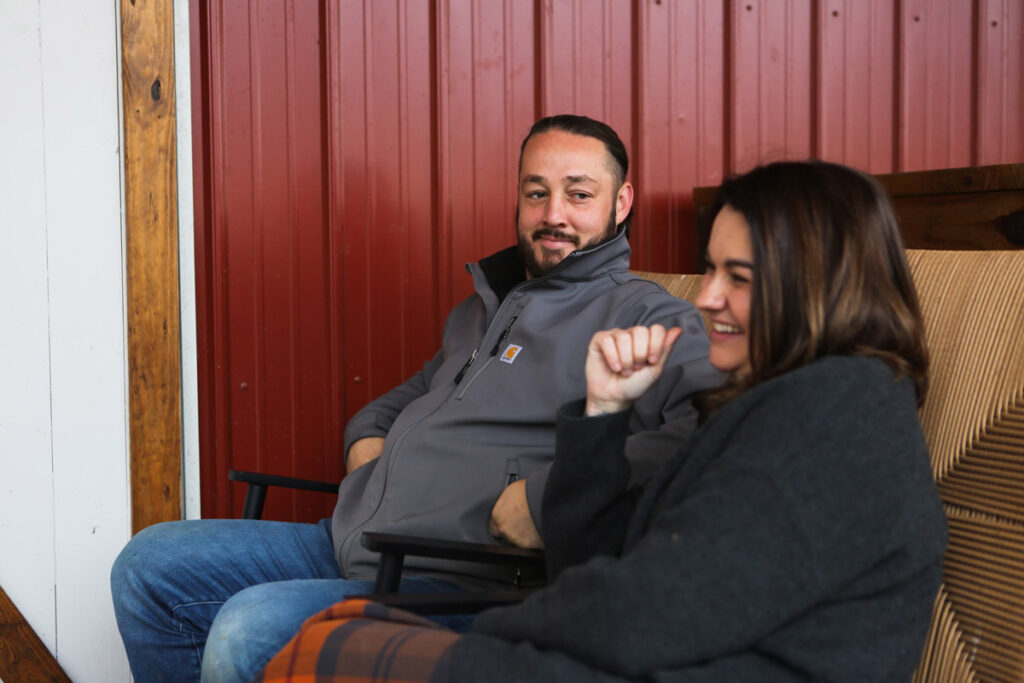
More Posts You May Enjoy
- The Brand New Roots & Refuge Podcast (Episode #1)
- Social Media and the Modern Homesteader (Podcast Episode #2)
- Our Five-Year Vision (Podcast Episode #3)
- You're Worth Caring For, and I Was, Too
- Burning Week
- A Night in the Garden
- The Grief of Growing Up
- 30 Dollars in a Little Tin
- Hello, Fall
- Snack and a Nap
- Parklike


